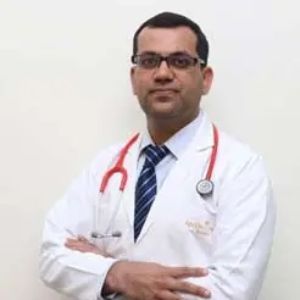Introduction
Newborn screening is a test that is used to detect any genetic as well as metabolic disorders that might be present in newborns. Newborn screening helps to prevent any problem before it starts developing symptoms. The illnesses that are detected at newborn screening are real, but they can be easily prevented or treated if they are detected early. The diagnosis and treatment based on newborn screening can help prevent diseases in newborns before they become serious.
What is newborn screening?
When your child is one to two days old, he will go through newborn screening. At birth, a baby is checked for medical conditions that could be dangerous but are rare and usually easy to treat. It includes assessments of the blood, hearing, and heart.
Even if they don't show any symptoms at first, your baby may already have a health condition. If a health problem is found early on through the screening of newborns, it is usually possible to treat it. Early intervention is important because it could keep your child from getting sicker or worse.
The newborn screening test cannot diagnose a disease all by itself. The neonates who need more diagnostic testing can be identified, nevertheless. Every year, newborn screening finds about 12,500 infants with uncommon illnesses.
Why is the newborn screening performed?
According to the news, newborn screening exams look for disorders that could be serious or life-threatening for infants and toddlers. Some diseases are found during screening before symptoms appear. Children can receive timely medical therapy for these diseases with an early diagnosis.
Doctors explain that when a disorder is discovered at this point, "we get to monitor the disease, educate the child's family, and start therapy before symptoms arise." The best benefit comes from treating the issue before the disease becomes irreversible.
What symptoms suggest that you may require newborn screening?
The illnesses that appear on each state's newborn screening panel are chosen individually. The Recommended Uniform Screening Panel (RUSP) is made available by the Secretary of the U.S. Department of Health and Human Services to assist state health agencies. There are 26 secondary conditions and 35 core conditions in this list (which are often discovered while screening for core conditions). There are four groups of conditions:
- Hormone levels that are excessively high or low are a result of endocrine diseases.
- Rare blood illnesses called hemoglobinopathies impair the blood protein that delivers oxygen throughout the body.
- Disorders of the metabolism impact how the body uses nutrition or regulates enzymes.
- other conditions, like spinal muscular atrophy, hearing loss, and cystic fibrosis.
The conditions from the RUSP that each state finally decides to include in their newborn screening program State screening panels may, however, have additional requirements that are not covered by the RUSP. More than 60 illnesses can be screened for, and at least 29 conditions are currently screened for in every state.
What should I expect from newborn screening?
You will be informed right away if your baby's newborn screen is positive, and the screening might need to be repeated. If the results show a true positive, specialists will do more tests to see if your baby has the condition.
There could still be questions about the diagnosis. If so, a medical team will keep an eye on the infant and administer care as necessary. To ensure the infant receives the care he or she requires, they will collaborate with the family throughout the procedure.
A negative screening result will be obtained in almost 99% of neonates. Your child's paediatrician will then receive the findings and be able to provide you with the information.
Conclusion
With help from the Natural Rural Health Mission, India's Ministry of Health and Family Welfare started the Rashtriya Bal Swasthya Karyakram (RBSK) programme for child screening and early intervention (NRHM).On a larger scale, it offers care to kids ages 0 to 18, including the diagnosis of birth defects, deficits, developmental delays, illnesses, and disabilities. In addition, for better advancement, we should emphasise the value of newborn screening and urge the government to support it. Programs that raise awareness and inform rural residents about this potential can change this situation.
Request an appointment at Apollo Cradle, DELHI-NCR - Chirag Enclave. Call 1860-500-4424 to book an appointment.
Before a child leaves the hospital, a process called "newborn screening" is used to check for several dangerous or potentially deadly diseases that can't be seen at birth. Through newborn screening, these babies can be found and treated before they have serious health problems or even die.
Yes, newborn screening tests ought to be given to all infants. Bring the infant to the hospital during the first 24 to 48 hours of life to have the test done there if your midwife or doula is unable to do it.
Numerous birth procedures are not included in newborn screening. The APGAR score, which measures a baby's vital signs and reflexes, blood glucose testing, Hepatitis B shots, vitamin K injections, and tests for jaundice are a few of these. Even though your baby's health will benefit from these tests, newborn screening does not include them.
The most common newborn screening disorders include phenylketonuria, homocystinuria, galactosemia, and congenital hypothyroidism.
Our Doctors
Treatments
- Anaesthesia & Pain Management
- General Pediatrics
- Growth Chart
- Newborn Screening
- Pediatric Allergy
- Pediatric Dermatology
- Pediatric Endocrinology
- Pediatric Nutrition
- Pediatric Orthopedics
- Pediatric Psychology
- Pediatric Surgery & Urology
- ROP Screening
- Stem Cell banking
- Vaccination/Immunisation schedule

 93 Patient Satisfaction Score
93 Patient Satisfaction Score




